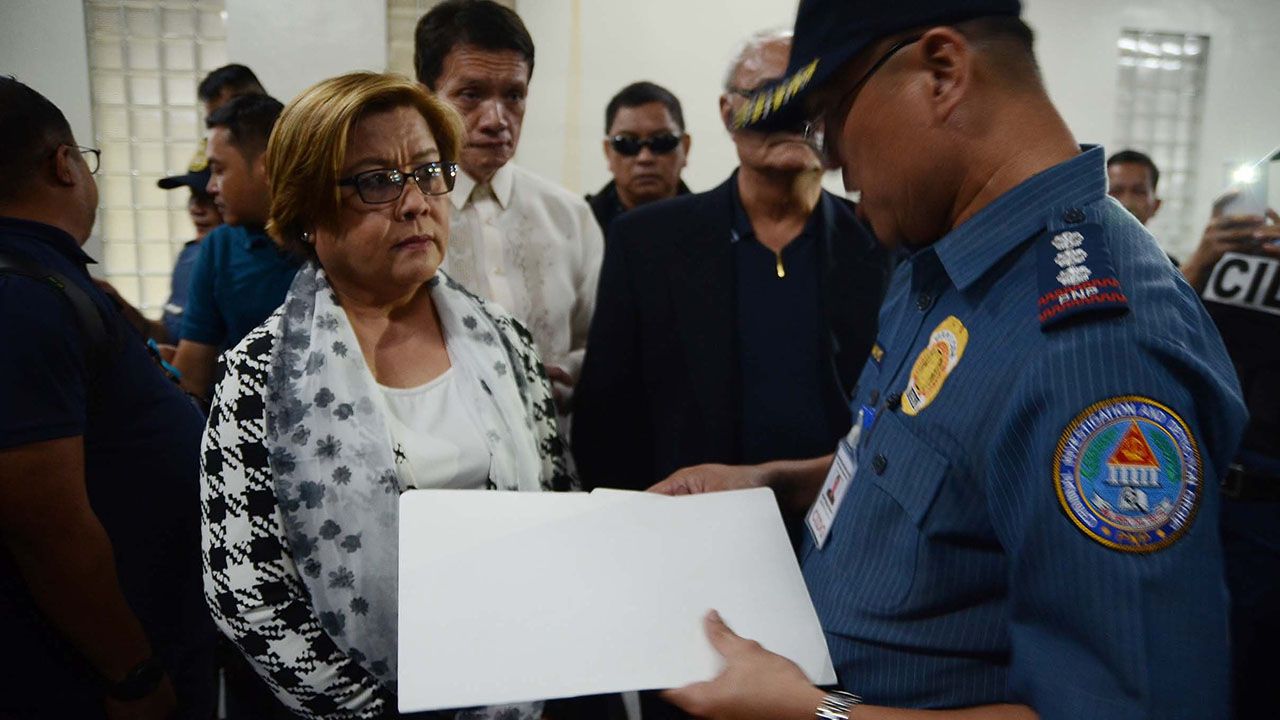
Manila-New York-The Hague
Senators De Lima and Trillanes IV called for the unconstitutionality of The Philippines’ withdrawal from the Rome Statute of the ICC, which may take effect on 17 March
PGA’s global membership of 1350 legislators from 140 countries condemns the continuing detention of Senator Leila de Lima on politically motivated drug trafficking charges and call for her immediate and unconditional release. Senator Leila de Lima, a fierce critic of the President of The Philippines, Rodrigo Duterte, was arrested two years ago, on 24 February 2017, in apparent retaliation for leading a Senate inquiry into the “drug war” killings.
On 30 November 2018, The United Nations Working Group on Arbitrary Detention (WGAD) issued an Opinion- endorsed by PGA-, concluding that the deprivation of Senator de Lima’s liberty is arbitrary and in contravention of the Universal Declaration of Human Rights and the legally binding norms of the International Covenant on Civil and Political Rights (ICCPR). Underscoring that the deprivation of de Lima's liberty “lacks legal basis” and resulted from her personal conviction and public statements regarding extrajudicial killings in The Philippines, the UN Panel called on the Philippine government for her immediate release.
PGA had already expressed serious concerns regarding the escalating repression and on-going harassment of those dissenting with the views and policies of the current President of the Republic of The Philippines. In April 2018, PGA Board member and Convenor of the PGA International Law and Human Rights Program, Barbara Lochbihler, MEP (Germany), co-authored a Joint motion for a Resolution adopted by the European Parliament, urging the Government of the Philippines to put a halt to its abusive practices violating the Rule of Law, democracy, and respect for human rights, while calling for the release of Senator Leila de Lima and guaranteeing her a fair trial.
PGA Members fully respect and support the separation of powers and the independence of the judiciary and therefore strongly reject any form of politicisation of prosecutorial and judicial authorities. The interference with the autonomy of Prosecutors and the independence of the Judiciary by the Executive in this case may de facto alter the constitutional checks and balances of democracy in The Philippines. PGA calls upon all these authorities to fulfil their constitutional obligations and exclusively apply the domestic law in line with international norms and principles on human rights to which The Philippines is bound under international law.
The situation has further been exacerbated by alarming attempts to re-introduce the death penalty by the House of Representatives of The Philippines, which approved a bill to this effect on 7 March 2017. Given the explicit prohibition of the death penalty under the Second Optional Protocol to the ICCPR- ratified by The Philippines in 2006, which led to the abolition of the capital punishment in the country, and the lack of any provision enabling the withdrawal from the said Protocol, reintroduction of the capital punishment would constitute a dire violation of the country’s international obligations. As of now, a coalition of Senators, including Sen. Leila de Lima and Sen. Antonio Trillanes IV- who has likewise been subject to a politically-motivated arrest last year-, has been able to successfully block the passage of the relevant legislation in the Upper House.
The situation of the withdrawal of The Philippines from the Rome Statute
Following the opening Preliminary Examinations into the situation of The Philippines on 8 February 2018 by the Office of the Prosecutor of the ICC, President Duterte issued a notice of withdrawal from the Rome Statute. The withdrawal was issued without the concurrence by the Senate which, under the Philippine Constitution, is required to ratify international treaties entered into by the Philippine President before they can bind the Philippines’ State. Based on this ground, six opposition Senators, including PGA members, Sen. De Lima and Sen. Trillanes IV, filed a petition on 16 May 2018, requesting the Supreme Court of The Philippines to declare the withdrawal "invalid or ineffective" and compelling the Executive Department to cancel, revoke, or withdraw the notification of the withdrawal deposited on 17 March 2018 to the UN Secretary General. While the hearings of the Supreme Court were concluded in November 2018, the Supreme Court has not yet issued a decision on the merits.
In this respect, it has to be emphasised that, de jure, regardless of when the fully-fledged investigation by the ICC is opened, a withdrawal from the Rome Statute will have no effect on the ICC jurisdiction to investigate and prosecute grave international crimes committed in The Philippines before such withdrawal would enter into force (i.e., on 17 March 2019). Accordingly, the withdrawal will have no legal effect on the existing obligations of The Philippines to cooperate fully with the ICC in its proceedings. Moreover, as confirmed by the ICC Decision regarding the situation in Burundi, the ICC may exercise its jurisdiction even after the date the withdrawal takes effect as long as the investigation or prosecution would relate to the crimes allegedly committed during the time in which The Philippines was a State Party to the Rome Statute. Consequently, while The Philippines will remain legally bound by the same obligations as prior to the withdrawal, such withdrawal might have a negative effect on alleged perpetrators at the highest level of the State’s chain of command, as the Prosecutor and the Judges might perceive the decision to exit from the Rome Statute system as an effort to escape from individual criminal responsibility.

